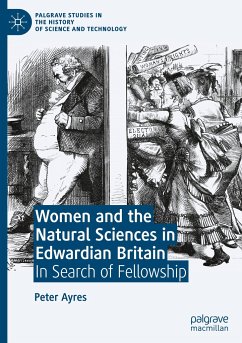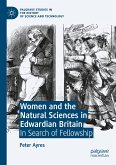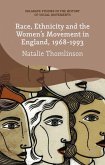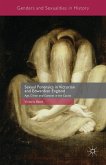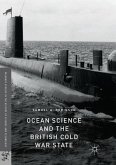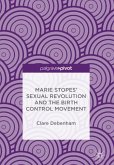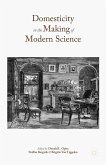This book tells the story of how women first fought for inclusion among scientific societies in Edwardian Britain. Though educational opportunities in schools and universities were improving, there were few fellowships or chances of paid employment in the sciences. Excluded from most scientific societies, women were deprived of not just the chance to share their scientific experiences with other enthusiasts but of mixing with and impressing potential employers. Barriers were overcome in many cases, but not in all. This book will explore the lives of individual women who were brave pioneers and by the outbreak of WWI had proved that they were the equals of men. Many at the heart of the struggle within the sciences were also involved in the fight for suffrage, their success in the sciences helping to change men's attitudes towards women.
"This book provides considerable details and bibliographic entries for those women who were the first to step into the scientifc societies devoted to natural sciences in London in the early twentieth century. ... This work thus gathers together a wealth of material on a question that needs further inquiry and investigation ... . We owe it to the author to have frmly pointed us in that direction." (Brigitte Van Tiggelen, Metascience, Vol. 32 (3), 2023)
"It is well suited for researchers interested in women's education, women in the sciences, amateur contributions to the sciences, and the response of scientific societies to changing social conditions. ... The book can certainly be recommended for a graduate seminar, or perhaps some chapters could be assigned to undergraduates as case studies illustrating the contributions of women in the sciences, both in terms of research and in terms of creating educational and mentor structures to promote and circulate that research." (Andre Michael Hahn, Isis, Vol. 112 (3), September, 2021)
"It is well suited for researchers interested in women's education, women in the sciences, amateur contributions to the sciences, and the response of scientific societies to changing social conditions. ... The book can certainly be recommended for a graduate seminar, or perhaps some chapters could be assigned to undergraduates as case studies illustrating the contributions of women in the sciences, both in terms of research and in terms of creating educational and mentor structures to promote and circulate that research." (Andre Michael Hahn, Isis, Vol. 112 (3), September, 2021)

